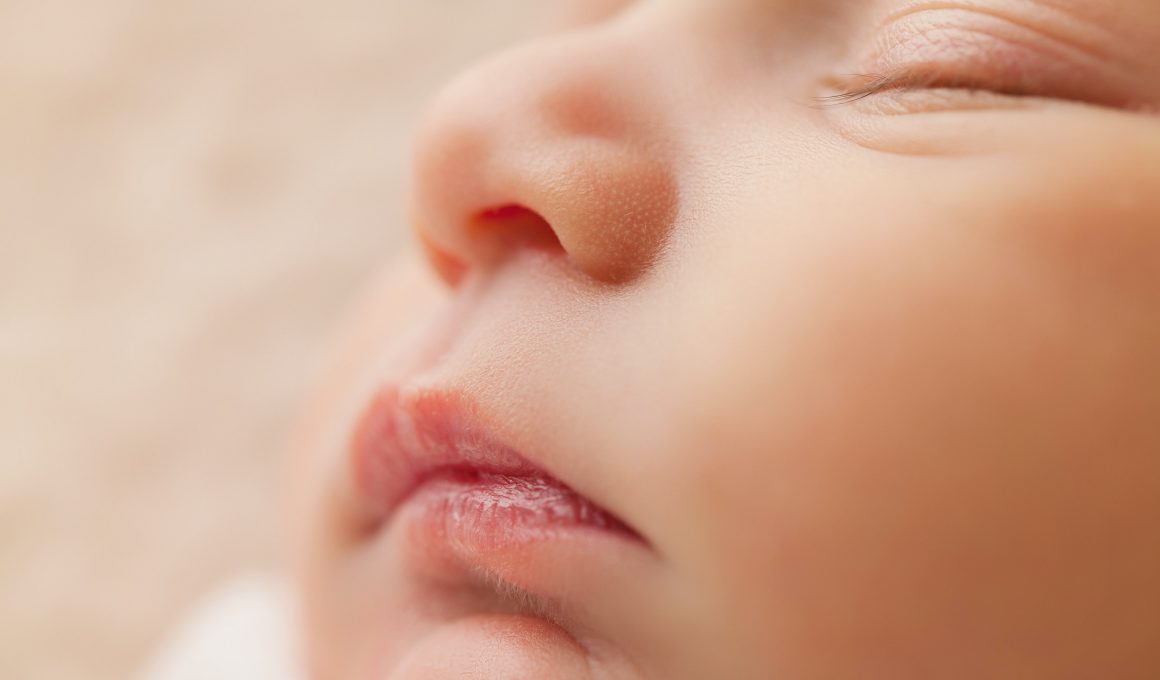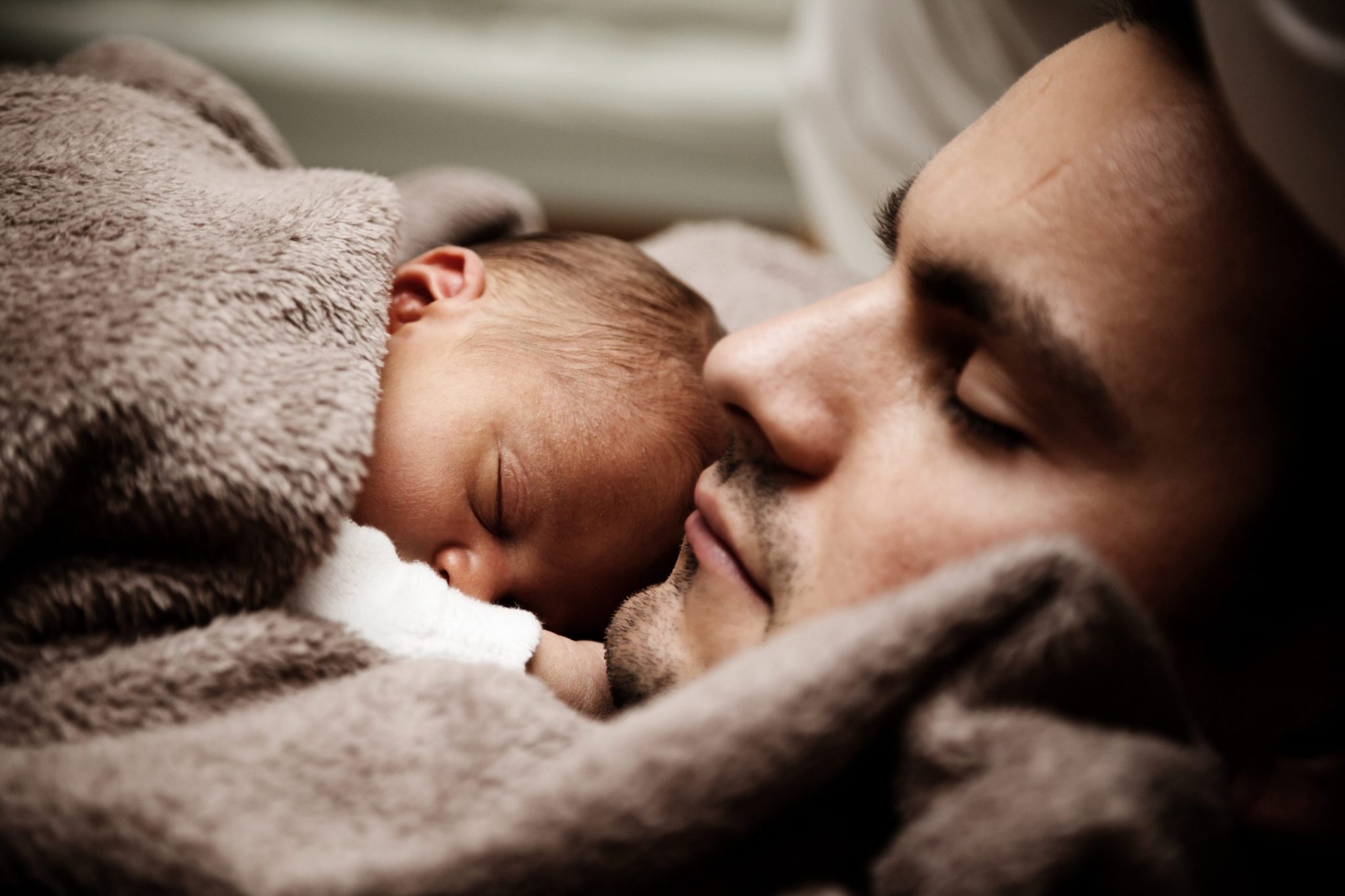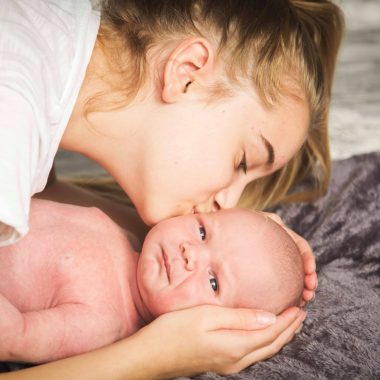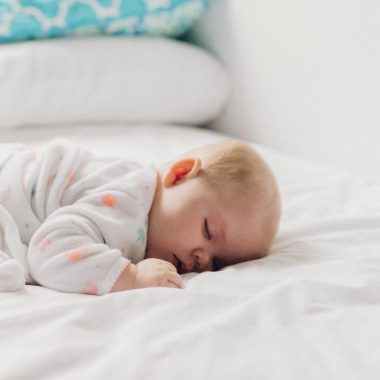Sleep has great importance in the development and growth of infants.
A regular sleep routine is vital to your baby’s physical and psychological health. And it needs some time and extra effort to establish.
This might mean introducing changes in your lifestyle as a parent and the schedule and routine around the house.
Sometimes adults have difficulties adapting to their new life as parents. But a little goes a long way, especially when you’re raising a beautiful new individual.
In this article, you will learn about newborn babies’ sleep routines and habits between the ages of 0 to 3 months. We looked for the most frequently asked questions and will give you all the answers.
When you learn the needs and tendencies of your baby, you can determine your road map for present parenting. And we hope to support you in the voyage of discovering more about your baby.
Table of Contents
- What You Need To Know About Newborn Sleep
- How Much Sleep Does A Newborn Need?
- How Much Sleep Do Premature Babies Need?
- How Long Is A Newborn Sleep Cycle?
- How Many Times Does A Newborn Wake Up At Night?
- How Long Should A 10-Day Old Baby Sleep?
- Why Is My Newborn Not Sleeping?
- Is My Newborn Waking Up Because Of Hunger?
- Should I Wake My Newborn Up To Feed At Night?
- How Can I Wake My Baby For Feeding?
- How Can I Teach My Baby the Difference Between Night & Day?
- How Long Does It Take For Newborns To Adjust to Day and Night?
- How Can I Understand My Newborn’s Sleepy Cues?
- How to Create An Ideal Sleep Environment for Your Baby
What You Need To Know About Newborn Sleep
As a sleepless parent, you should know some important facts about newborn sleep. These will indicate whether your newborn’s sleep is disorganized or not.
Fret not, this is just the start of it all. It is a learning curve and over time, it all gets easier.
Newborns never sleep for long periods in one go: Newborn sleep ranges from 30 minutes to 4 hours throughout the day or night.
Newborns wake up easily: Newborns spend the biggest portion of their sleep in the “active phase”. This is a light sleep state; you will notice that their eyelids flutter, their breathing is rapid and irregular, and they will occasionally move their body.
Newborn sleep periods vary widely: In the first few days, the average newborn sleeps between 14-17 hours in 24 hours. But every baby is different, and these sleep intervals are unique to your baby.
Newborns are noisy sleepers: A newborn’s normal breathing rate is 40 to 60 breaths a minute when awake. Once they are asleep, their breathing rate may slow to 30-40 breaths per minute. Or your baby may take shallow breaths for 15-20 seconds and then stop breathing entirely for a few seconds. This irregular breathing pattern may produce weird noises. But it is rarely a cause for alarm.
ALSO READ: Sleep Deprivation In New Parents
How Much Sleep Does A Newborn Need?
National Sleep Foundation (NSF) recommends that newborns sleep between 14-17 hours over a 24-hour period.
NSF experts also mention that this is a broad recommendation and that an hour less or more may be appropriate for some children.
Your baby will sleep for only two to three hours at a time. And then, as time goes by, they will gradually sleep three to four hours at a stretch.
Newborns have tiny tummies. This means they need to be nursed often. So they wake up every couple of hours to feed.
Breastfed babies feed often, about every 2–3 hours. Bottle-fed babies tend to feed less often, about every 3–4 hours.
Newborns who sleep for longer stretches should be awakened to feed. So it will be appropriate to wake your baby up every 3–4 hours to feed until they show good weight gain, usually within the first couple of weeks.
But also remember that babies vary in when and how much they sleep every night and at naptime.
Newborns sleep day and night. The parts of their brains that control day-night sleep cycles aren’t mature.
How Much Sleep Do Premature Babies Need?
Babies born prematurely often need more sleep than babies born at full term.
Premature babies tend to sleep 22 hours a day but only for an hour or so at a stretch.
Preterm babies spend less time in deep sleep and are rarely fully awake.
The exact amount of time a preterm newborn sleeps can depend on
- how premature they are born and
- their overall health.
After the first 12 months, premature sleep patterns resemble those of full-term infants. But in the meantime, they often have
- more total sleep,
- lighter sleep,
- less consistent sleep overall.
ALSO READ: Put Your Baby To Sleep In Less Than A Minute
How Long Is A Newborn Sleep Cycle?
When newborns sleep, they go through sleep cycles.
And each newborn sleep cycle which takes about 45-50 minutes, has two different kinds of sleep: active sleep and quiet sleep.
Active sleep (REM): The baby moves around a lot and makes noises. They can wake up easily.
Quiet sleep (Non-REM): The baby is still. Breathing is regular and deep. The baby is less likely to wake up during quiet sleep.
Newborn babies typically begin their sleep cycle with REM sleep, also called active sleep.
- Newborns go from one phase of sleep to another, as we all do. And at the end of each cycle, the baby wakes up for a short while. You might hear your baby cry or emit grunting sounds. And you might need to settle your baby and calm them down in preparation for the next sleep cycle.
- Newborns in REM aren’t physically inactive like adults usually are during REM sleep. The baby may twitch or jerk their arms or legs. Their eyes move under their closed eyelids. Breathing is often irregular. Newborns may even vocalize in their REM. This restless state makes parents think that their babies are waking up. In fact, the baby is still sleeping, but they are in the active sleep phase.
- Quiet sleep appears to be more restful. It’s harder for babies to awaken from quiet sleep, but this can be a cause of concern if your baby isn’t getting enough oxygen. Experts say newborns probably benefit from being light sleepers which likely lowers the risk of SIDS.
- For the average infant, newborn sleep cycles are shorter, around 45-50 minutes. REM takes up the biggest proportion of sleep time. It’s not unusual for newborns to spend more than half of their total sleep time in REM.
- Like adults, newborns are more likely to awaken during REM and during transitions between sleep stages. However, unlike adults, newborns spend more time in REM, and their transition between cycles is more frequent.
- A baby who seems to be waking up may go back to sleep pretty soon (all on their own) if left alone.
How Many Times Does A Newborn Wake Up At Night?
Newborn babies wake up repeatedly at night during the first few months. This is quite normal. Newborns can’t quite tell the difference between day and night. So you don’t need to worry about their haphazard sleeping pattern.
You might start noticing your baby sleeps for longer periods at night around 3 months of age. They can sleep up to 4-5 hours in one stretch. Still, it is possible that your baby wakes up at least once at night.
If your baby is a premie or a low-weight birth baby, your pediatrician might recommend waking them up for feeding at regular intervals during the night.
ALSO READ: Baby Wakes Up Every Hour – HELP!
How Long Should A 10-Day Old Baby Sleep?
A 10-day-old baby might sleep up to 14-17 hours a day.
Most babies wake up at least every 2-3 hours to feed. Since their stomachs are tiny, they feed often, and that too in small amounts. When they feel hungry, they wake up, feed, and fall back to sleep.
When they begin to develop a sense of day vs. night cycle, their sleep duration extends to 4-5 hours.
Furthermore, they begin to stay awake for longer periods during the day as they grow older.
Why Is My Newborn Not Sleeping?
Normally a newborn baby needs 14-17 hours of sleep in 24 hours. But sometimes, your newborn can have trouble sleeping.
Below you will find common sleep problems in newborns and how to cope with them.
Your newborn is mixing up day with night
This phenomenon looks like this: your baby sleeps well during the day but stays up all night long. It’s frustrating but don’t worry, it’s temporary.
Here are a few things you can do to help your baby learn that day is for play and night is for sleep.
Try to keep your baby awake for longer periods during the day: This will increase your baby’s need for sleep later. According to some experts, after feeding you should play with your baby for a few minutes before putting them to sleep. Here is what that should look like: Feed the baby. After feeding, sing your baby a song or lullaby, talk to them, and keep them awake for a short while by keeping them engaged. Then you can put them to bed.
Take your baby outside during the day: Natural light helps your baby reset their internal clock. If you can’t go outside, place the baby’s crib near a window for them to take advantage of daylight.
Avoid sleep-promoting activities during the day: If your baby sleeps more than they need during the day, getting them to sleep at night can be a problem. Don’t leave your baby in the car seat for long periods while you drive. This is an example of sleep-promoting activities.
At the same time, make sure not to fight your baby’s need for sleep aggressively.
Keep lights and other stimulators low: When it’s bedtime for night sleep, your goal should be to eliminate disruptions as much as possible. Keeping the lights, sounds, and movements low can help.
Consider swaddling your baby during the night: Babies can wake up from their own body’s movements. Believe it or not, your baby can wake themselves up if they move their arms and legs. If you consider swaddling, you can minimize this movement. Plus, it gives the baby a sense of being hugged and held, which promotes feelings of safety.
ALSO READ: How To Deal With Sleep Regression At Every Age
Your Baby Gets Hungry
Your newborn cannot eat all that much in one feeding. If you are breastfeeding, your baby will get hungry since breastmilk is digested far easier than formula. This makes the baby feel hungry faster and it can cause them to wake up to feed.
Hunger is the most common reason behind waking up at night. A newborn needs to feed frequently and delaying their hunger is unhealthy.
Moreover, thirst is another reason your baby might wake up midsleep. A short feeding session can help your baby quench their thirst and fall right back to sleep.
Your baby is experiencing physical changes
Your baby’s body is constantly changing and growing, especially during the first year of life. Your baby might not be adjusting to these changes very well.
For instance, your baby may
- have gas
- be constipated
- be teething
- have allergies
- have a cold
All these may cause your baby to wake up frequently during the night. Consider consulting your pediatrician about anything that concerns you regarding your baby’s health.
Your baby needs you
A secure attachment with parents helps promote an infant’s cognitive, emotional and social development.
Meeting your baby’s needs at the right time is the basic way of establishing a secure attachment.
Some babies need to remain in touch with their parents constantly.
For instance, your baby
- wants to know what you are doing,
- wants to be held,
- wants to play with you in the middle of the night
- needs to feel close to you – your smell, your voice, and your heartbeat.
Any of the above reasons can be why your baby is struggling to sleep. Room sharing with the baby (not bed sharing) can help a little. This way, being together in a physical environment can let parents rest for a while.
ALSO READ: Why Won’t My Baby Sleep?
Your baby might be overstimulated
Babies are sensitive. They get easily overstimulated, and this can keep them back from falling asleep.
Causes of overstimulation can be caused by the following:
- Loud noises
- Crowds
- Excessive light
- Too much daytime play
- Diet of the mother (stimulators like chocolate in the mother’s milk can pass to the baby’s body)
- Not getting a timely response to crying
Overstimulation is a major cause of sleep problems in infants.
Is My Newborn Waking Up Because Of Hunger?
Since newborns have tiny tummies, they need to feed frequently. This is one reason why they wake up during the night.
But nighttime wake-ups may have other causes.
If a baby fed regularly begins to wake up sooner than normal, you should search for other causes.
You can try to calm your baby and put them back to sleep.
If the baby falls asleep, this can indicate a cause other than hunger.
But if the baby has trouble falling back asleep, they may be hungry.
Your baby will show signs of hunger by using sounds and movements. When hungry, your baby will:
- Bring their hands to their mouth
- Open and close their mouth often
- Clench their hand
- Turn their head towards your breast or the bottle
- Make sucking motions with their mouth
- Suck on their hands, fingers, or clothes
- Cry (crying is a late sign of hunger)
You can also look for signs of hunger during the night and decide how to deal with the situation.
ALSO READ: What Prevents Babies From Sleeping Through the Night?
Should I Wake My Newborn Up To Feed At Night?
If your newborn sleeps longer than 2-3 hours at a stretch during the night, you should wake them up.
In the first few weeks of their life, newborns’ little tummies digest breast milk quickly. This means they need to be fed every 2-3 hours.
Formula usually takes longer to digest. So formula-fed babies can be fed after longer periods, usually 3-4 hours.
Experts recommend waking newborn babies for nighttime feedings. Your goal is to ensure your newborn is developing, growing, and gaining weight. So don’t skip out on the nighttime feeding sessions.
Moreover, this also helps breastfeeding moms keep up with the pace of their milk production.
As your newborn develops and grows, you will notice that they are gaining weight. As long as they are at a healthy weight, you can allow them to sleep a little longer and slowly work towards stretching out their feeding intervals.
In case you have any doubts or questions, you can always turn to your pediatrician for a consult.
How Can I Wake My Baby For Feeding?
Waking up your baby can be tricky. New parents find it especially challenging to rouse their newborn baby. But it doesn’t have to be that way.
Some simple and effective rousing techniques are:
Turn The Lights Up Slowly
Instead of turning on all of the lights in one go, start slowly. Start with dimmer lights as that is less likely to startle your baby.
Talk or Sing Softly to Your Baby
Newborns love their parents’ voices. A soothing and gentle way of rousing your baby is to talk softly to them. You can even try humming or singing instead.
Touch Your Baby Softly
Gently touching or massaging your baby can ease them into waking up. It is also pleasurable and boosts bonding with your baby.
Keep Up With Their REM Cycle
Closely monitor your baby’s sleep. The active sleep stage, also called REM, is the right time to wake your newborn baby to feed.
You can detect your baby’s REM stage by noticing if:
- Baby’s eyes flutter
- Baby moves their arms
- Baby kicks their legs
If you are occupied with other chores, worry not. Invidyo can help you detect when your baby starts moving. If you have an Invidyo Baby Cam set up in your nursery, you will be instantly notified of any movement or changes in your baby’s sleep.
ALSO READ: What is the Best Way to Get My Child to go to Sleep?
How Can I Teach My Baby the Difference Between Night & Day?
In newborns, day and night confusion means that their body clock hasn’t set itself yet. There is an imbalance in your baby’s immature circadian rhythm. The internal mechanisms that allow babies to understand day and night haven’t fully developed yet.
Getting used to the day and night cycle takes a little while.
Two reasons why this happens are:
- your baby sleeps for big stretches during the day but
- wakes up a lot more regularly during the night.
During pregnancy, you would spend your time moving around throughout the day. This means you were rocking the baby to sleep. Then probably, when you sat down, you felt your baby wake up and start moving around inside the womb. This is one reason your baby sleeps all day and wakes up at night. Your baby is still used to the womb routine!
Babies’ circadian rhythm usually starts to develop around 2-3 months. But, until then, there are a few things you can do to help your baby learn the difference between day and night so they can regulate their sleep patterns better:
- When your baby wakes up in the morning, open the curtains, engage them with a conversation or song, change their diaper and start the day. These little habits help your baby build a routine and associate certain actions with the morning.
- During the day, fill the house with natural light. Exposure to natural light and fresh air can help babies adjust to the day and settle into a peaceful slumber at night.
- When your baby is awake during the day, interact with them – talk to them, play with them. You can take your baby out for a walk every day as well. This is excellent for both you and your baby.
- During the day, make sure that your baby hears sounds associated with morning rituals. This can include music, the vacuum or washing machine, etc. This way, your baby will understand that the morning is for activities and nighttime is for sleep.
- In the evening, switch up your routine to give your baby an idea that it’s time to turn in. You can establish a sleep routine gently by doing activities such as changing them into pajamas, giving them a warm shower, dimming the lights, and reducing external sounds and noises.
- During evening feeding sessions, make sure your baby’s environment is quiet. Talk to your baby in a low voice. Actively reducing noise levels around your baby will automatically lull them to sleep and help them relate quietness with nighttime and sleep.
When feeding your baby at night, it is ideal to do so in the dark. If you switch on the lights, chances are you will rouse your baby fully, and it will be difficult to get them to fall back to sleep.
How Long Does It Take For Newborns To Adjust to Day and Night?
It takes a while for newborns to get used to the day and night cycle.
Most infants begin to differentiate between day and night around three months of age. This is also when they start sleeping for longer stretches during the night.
Of course, every baby grows and develops at a different pace. Some factors that can affect your baby’s adjustment to day and night include:
- Genetics
- How often your baby gets hungry
- Presence of gas
- Teething
- Their environment’s temperature
You can try to find a gentle way of establishing day and night sleep routines even in the first weeks of your baby’s life.
ALSO READ: What is the Best Baby Sleep Schedule?
How Can I Understand My Newborn’s Sleepy Cues?
Your newborn will exhibit several signs that will indicate that they are sleepy. In the beginning, you may have trouble detecting these clues. But as time goes by, you will get used to your baby’s habits, tendencies, and cues.
Below you will find some of the most common clues of sleepiness in newborns.
A sleepy baby will:
- Rub their eyes
- Clench their fists
- Pull at their ears
- Yawn
- Cry
- Stare off in space
- Appear worried
- Jerk their arms and legs
- Arch backward
- Suck on their fingers
- Demand your attention
When you start noticing these signs, respond to your baby’s cues. Don’t neglect them or ignore them, as it might disrupt their sleep pattern.
How to Create An Ideal Sleep Environment for Your Baby
There are three essentials of a healthy and ideal sleep environment for your newborn.
These are:
- Room temperature
- Darkness level
- Noise levels
Let’s take a closer look at how important these three factors are.
Room Temperature
Adjusting your nursery to the ideal room temperature will significantly impact your baby’s sleep habits. Keeping the nursery at the perfect temperature is also important as it reduces the risk of overheating, which has been linked to SIDS.
So, what is the perfect room temperature? The ideal room temperature for a sleeping baby is between 66.2°F to 69.8°F (19-21°C).
If the room is too hot or cold, your baby may have trouble falling asleep or sleeping soundly.
A simple check of your baby’s body temperature with your hands can help you identify if your baby is too warm or too cold.
If your baby’s tummy and back are clammy and your baby is sweating, you should ventilate the room and remove extra clothing.
If it’s cold to the touch, adjust the room’s temperature. Be careful not to add many layers or pillows/cushions to the crib. Also, avoid placing a hat on your sleeping baby.
Blankets and quilts are not appropriate additions to your newborn’s crib. Consider getting onesies or warmer pajamas instead.
ALSO READ: Sleep Training Methods: What is the Best One for My Baby?
Darkness Level
First of all, make sure that your baby’s room is well-ventilated during the day.
At night, when it’s time to put your baby to sleep, make sure to:
- Keep stimulators like toys and accessories out of your baby’s reach
- Dim the lights and create a dark, sleep-inducing atmosphere
The faster your baby learns that darkness is a signal to sleep, the sooner they adjust to a healthy nighttime routine.
Noise Levels
Silence is golden. Noise can be a stimulator for your newborn.
During the day, it is hard to eliminate all ambient noise. Even if you keep noise levels low in the house, there are always external sources of noise in the environment. At night, the rest of the world goes to sleep, making the overall environment much quieter.
You can build a nighttime sleep routine by simply ensuring to maintain this silence around your newborn baby. Silence will hence act as a good signal to sleep at night.
However, some babies are not very receptive to silence. They find solace and comfort in sounds such as your voice.
This is where you can try and use white noise or lullabies to lull your baby to sleep. The Invidyo Baby Monitor has built-in lullabies and white noise that you can play remotely from the app.
To use white noise safely and effectively, it’s important to keep it at a certain volume. Noise levels should not exceed 50-60 dB. The best spot to place your source of white noise would be across from the crib, not right next to it.
Extra Tips to Encourage a Safe Sleep Environment
According to the American Academy of Pediatrics (AAP) adult beds aren’t safe for infants. But you can place your baby’s crib or bassinet in your bedroom.
AAP reports that sharing a bedroom with parents can decrease the risk of SIDS by as much as 50 percent in newborns.
Other tips for a safe sleep environment are:
- When putting your baby to sleep, always place them on their back
- Remove thick padding, stuffed toys, and blankets from the crib to prevent suffocation
- Use a firm crib mattress
- Use a sleep sack
- Maintain a smoke-free home
ALSO READ: How to Make Baby Sleep Without Feeding?
Over time, you and your baby will learn to adjust to the new routine. As a new parent, you are learning something new every day, and your baby is experiencing the world for the first time.
In this new journey, it will take some time for you to understand your baby and for your newborn baby to learn about the world. Just remember to be patient and take it one day at a time.
References: healthline.com, clevelandclinic.org, whattoexpect.com, babycenter.com, mayoclinic.org, raisingchildren.net.au, kidshealth.org










